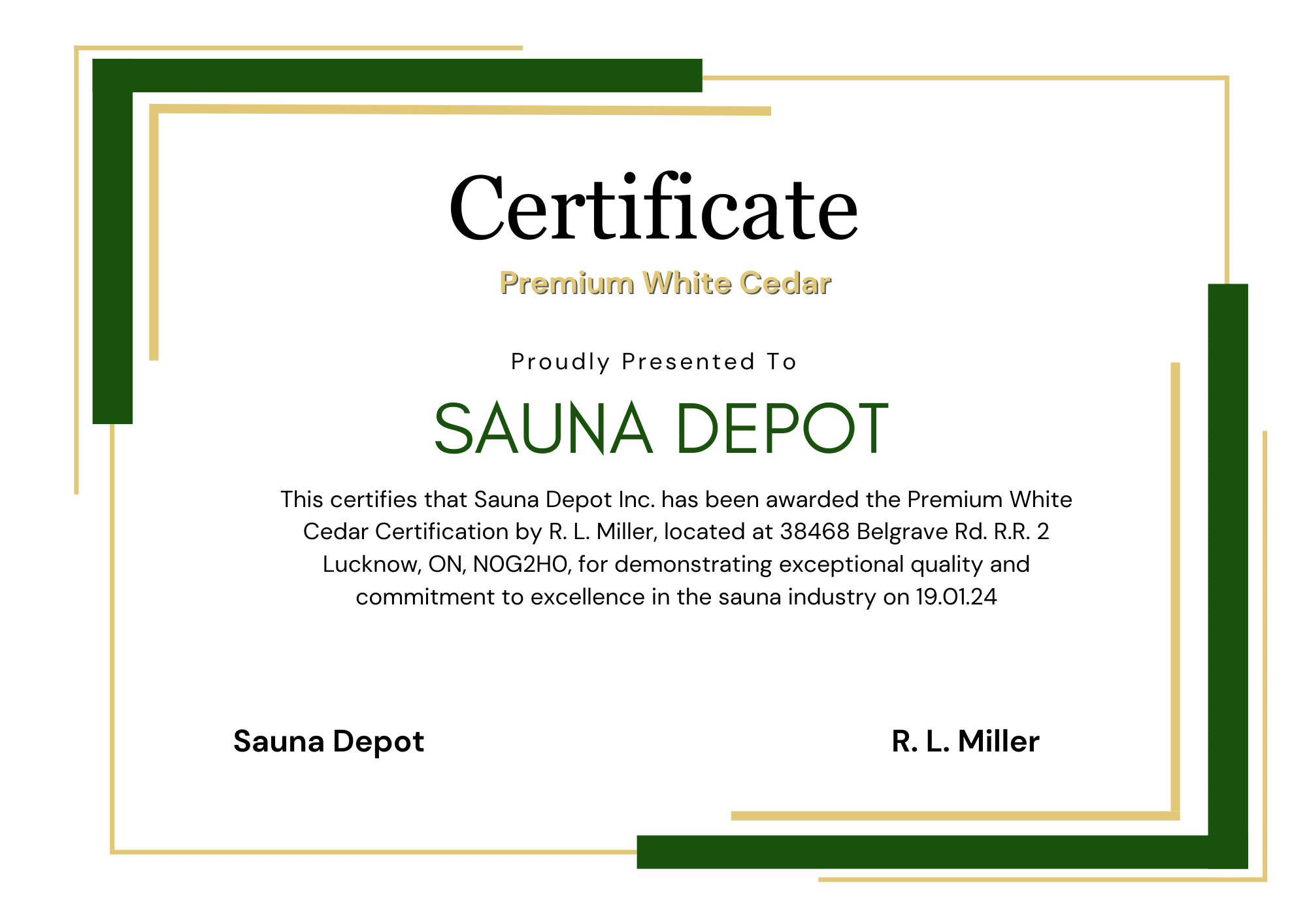Is it Safe to Make Steam Bath in Outdoor Saunas with Electric Heaters?
People often ask if it would be safe to make steam bath in an outdoor sauna that has an electric heater. The answer is yes. Using an electric heater in an outdoor sauna to create a steam bath can be safe and enjoyable if you follow the proper precautions and maintenance routines. It’s a wonderful way to enjoy the benefits of both dry and steam saunas in one setup. So go ahead, pour a little water on those rocks, and let the soothing steam transport you to a state of blissful relaxation. Just remember: a little steam goes a long way, and safety always comes first!
Safety Tips for Using an Electric Heater in an Outdoor Sauna for Steam Baths
Here’s a detailed explanation with some important points to consider:
Proper Installation
- Professional Installation: Ensure the electric heater is installed by a professional. This includes proper wiring, grounding, and adherence to local electrical codes.
- Waterproofing: The sauna structure and heater should be designed to handle the humidity and occasional splashes of water.
Suitable Heater Type
- Sauna-Specific Heaters: Use heaters specifically designed for saunas, which are built to withstand high humidity and temperature variations.
- Automatic Shut-Off: Choose a heater with an automatic shut-off feature to prevent overheating and enhance safety.
Using Water on the Heater
- Steam Creation: Pouring water over the sauna rocks is how you create steam. Only a small amount of water should be used at a time to avoid damaging the heater.
- Avoiding Electrical Components: Ensure water only contacts the rocks and does not come into contact with any electrical components. This is why sauna heaters are designed with protective casings.
Ventilation
- Adequate Ventilation: Ensure your outdoor sauna has proper ventilation to manage the increased humidity levels and to provide fresh air.
- Controlled Environment: Maintain a controlled environment where steam can circulate properly without causing damage to the structure.
Regular Maintenance
- Check Electrical Connections: Regularly inspect the heater and electrical connections for signs of wear or damage.
- Rock Maintenance: Ensure the rocks are properly arranged and replace them if they become cracked or degraded.
Benefits of Steam Bathing
- Improved Blood Circulation: Steam baths can improve circulation, relieve muscle tension, and promote relaxation.
- Detoxification: The steam helps to open pores and remove toxins from the skin.
- Respiratory Relief: Steam can help alleviate congestion and improve respiratory function.
- Skin Health: Regular steam baths can enhance skin health by moisturizing and improving elasticity.
Fun and Practical Tips for a Safe Steam Bath Experience
- Start Slowly: Begin with small amounts of water to find the right balance of steam and heat that’s comfortable for you.
- Use Essential Oils: Add a few drops of essential oils like eucalyptus or lavender to the water for a soothing aroma.
- Stay Hydrated: Drink plenty of water before and after your steam bath to stay hydrated.
- Timing: Limit your steam bath sessions to 15-20 minutes to avoid overheating.
What Type of Sauna is More Health Beneficial – Hot Dry Sauna or Steam Bath?
Both hot dry saunas and steam baths offer unique health benefits. The choice between the two depends on your health needs, preferences, and specific conditions. Whether you prefer the intense heat and detoxification of a dry sauna or the respiratory and skin benefits of a steam bath, incorporating either into your wellness routine can contribute to improved health and well-being. Ultimately, it’s about finding the right balance that suits your body and lifestyle.
Hot Dry Sauna
Some people find dry heat more comfortable and easier to tolerate than the high humidity of a steam bath. The high temperatures encourage more intense sweating, which some believe enhances detoxification. Overall, the health benefits of hot dry sauna are very similar to the ones of steam bath:
- Improved Cardiovascular Health: The high temperatures cause the heart rate to increase, which can improve circulation and cardiovascular health. Regular use has been linked to a reduced risk of heart disease.
- Detoxification: Sweating helps to expel toxins from the body, promoting detoxification. Dry heat can lead to more intense sweating compared to steam baths.
- Stress Relief: The heat helps to relax muscles and relieve tension, promoting a sense of relaxation and well-being. The quiet, dry environment can be very soothing.
- Skin Health: Increased blood flow can improve skin health and give it a healthy glow.
Steam Bath
The high humidity can be more comfortable and beneficial for those with respiratory issues and skin conditions. Moist heat can penetrate the tissues more effectively, providing relief from muscle pain and soreness.
- Respiratory Health: The moist heat can help to open airways, making it beneficial for those with respiratory issues like asthma or bronchitis. Inhaling steam can help to loosen mucus and relieve congestion.
- Skin Hydration: The humidity helps to hydrate the skin, which can be particularly beneficial for those with dry skin conditions. Steam can help to open pores and cleanse the skin deeply.
- Muscle Relaxation and Pain Relief: The moist heat penetrates deeper into tissues, which can help to relax muscles and relieve pain. It can be especially soothing for people with arthritis or muscle soreness.
- Stress Reduction: The warm, humid environment can promote relaxation and reduce stress levels.
Bottom Line:
- Hot Dry Sauna for Cardiovascular and Detoxification: If your primary focus is on cardiovascular health and detoxification through intense sweating, a hot dry sauna may be more beneficial.
- Steam Bath for Respiratory and Skin Health: If you have respiratory issues, dry skin, or prefer a more hydrated heat experience, a steam bath might be the better choice.
Personal Preference and Health Considerations
- Heat Tolerance: Some people tolerate dry heat better, while others find the moist heat of a steam bath more comfortable.
- Health Conditions: Consider any specific health conditions you have. For example, those with asthma might benefit more from steam baths, while those with cardiovascular concerns might prefer the benefits of a dry sauna.
- Overall Experience: Personal comfort and preference play a significant role. Some people enjoy the traditional experience of a hot dry sauna, while others appreciate the spa-like environment of a steam bath.
Both hot dry saunas and steam baths offer significant health benefits, but the type that is more beneficial can depend on individual health needs, preferences, and specific conditions.




